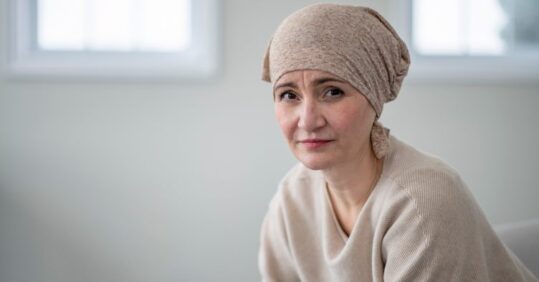Aspirin may help treat aggressive breast cancer

Aspirin is being trialled as part of a treatment for an aggressive form of breast cancer, when combined with immunotherapy.
The research, led by Dr Anne Armstrong from the Christie NHS Foundation Trust in Manchester, is the first clinical study to test if aspirin can make tumours more sensitive to immunotherapy in patients with triple negative breast cancer.
It will trial the immunotherapy drug avelumab both with and without aspirin, before surgery and chemotherapy treatment. Patients’ breast cancer tumour samples will then be evaluated to see if aspirin can enhance the effects of immunotherapy.
Related Article: Measures to prevent cancer would be cost-effective, suggests economic report
Charity Breast Cancer Now, which is funding the study through its catalyst programme, said: ‘If successful, the trial could pave the way to urgently needed new treatment options for the 8,000 women diagnosed with triple negative breast cancer in the UK each year.’
Triple negative breast cancer is an uncommon but an aggressive type of breast cancer that disproportionately impacts younger women and black women.
It refers to a group of breast cancers lacking three molecules that usually feature in the disease: the oestrogen receptor, progesterone receptor and human epidermal growth factor receptor 2.
These molecules have been used to develop a variety of targeted treatments for other type of breast cancer. But their absence in triple negative breast cancer means treatment options from this type are usually limited to a combination of surgery, chemotherapy and radiotherapy.
The trial follows previous research showing that pairing an immunotherapy drug with aspirin helps to control tumour growth in mice more successfully than immunotherapy drugs alone.
Related Article: Mythbuster: ‘I don’t need a smear test – I’ve had my HPV jab’
Immunotherapies help the immune system recognise and attack cancer cells, but do not work for everyone with triple negative cancer. The trial may help more people benefit from this treatment.
If successful, this research could lead to trials of aspirin and avelumab for incurable secondary triple negative breast cancer, which occurs when cancer cells spread to other parts of the body.
Lead researcher Dr Armstrong said: ‘Our earlier research has suggested that aspirin can make certain types of immunotherapy more effective by preventing the cancer from making substances that weaken the immune response.
‘Anti-inflammatory drugs like aspirin could hold the key to increasing the effectiveness of immunotherapy when used at the same time.
Related Article: Smoking rates fall most significantly in the North of England
‘Trialling the use of a drug like aspirin is exciting because it is so widely available and inexpensive to produce.’

See how our symptom tool can help you make better sense of patient presentations
Click here to search a symptom




